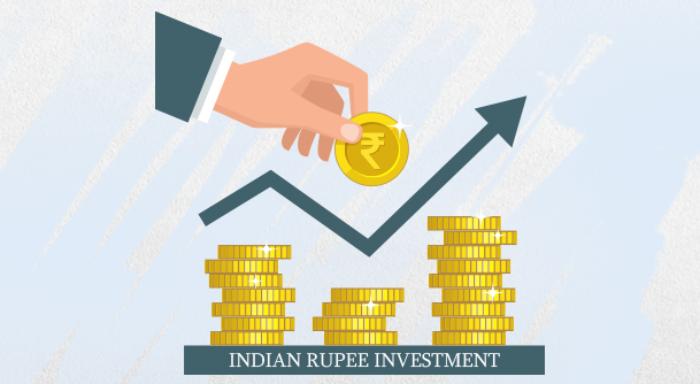Regular Income or Lumpsum Payout? Which One Should You Choose?
Blog Title
1305 |
9/11/24 4:30 AM |
Want to ensure your family’s financial protection and wealth growth? Then what you’re looking for is a savings life insurance plan! Savings plans not only secure your family’s future but also ensure your growth by providing returns on your investment. There are multiple types of savings plans available in India. But ultimately, your returns will be paid out in one of two ways- regular income via survival benefits or a single lumpsum maturity benefit.
But which option is better for your financial growth? The honest answer is that neither option is inherently better than the other. Both options have their own pros and cons. The primary thing to consider is your own personal financial goals, as each person has their own unique needs and wants. Here’s a quick breakdown of the differences between income and lumpsum payouts, as well as a simple guide on how you can choose the best payout option for your goals!
Meaning of Survival Benefit & Maturity Benefit
Before delving into the pros and cons of income vs lumpsum payouts, you need to understand the basic principles behind the two options.
Survival Benefits- Survival benefits are paid out according to a predetermined schedule set during the inception of your policy. Simply put, your returns are paid out in small chunks in the form of regular income. The duration of your survival benefit payouts can range from 10 years to your entire lifespan! So, this option is great if you want to create a source of passive income that supplements your salary. And as the name implies, survival benefits will only be paid out if you are still alive during the payout period.
Maturity Benefits- On the other hand, maturity benefits are only paid out once your policy term ends, meaning that all your returns will be paid out in one single lumpsum. Of course, this means that your returns will be delayed significantly (depending on the length of your policy term). But on the plus side, the lumpsum amount will be a significant boost to your savings. This option is great if you need a large sum of money to fulfil major life goals like buying a new house.
Pros and Cons of Regular Income
Having a dependable source of passive income can be a great boon for your yearly budget. However, the downside is that you are only getting small chunks of your total returns, which isn’t useful if you need to meet a major financial goal. Below is a list of pros and cons for regular income.
Benefits of Regular Income Plans
Creates a source of passive income that is reliable
Supplementary income can help you increase your monthly/yearly budget
Creates a sense of security as you will receive some income irrespective of whether you have a job or not
Length of income payout period can be highly flexible, and may extend for your entire life in case of whole life insurance or annuity plans
Smaller income instalments are taxed at lower rates
Downsides of Regular Income Plans
May have to wait for years to get back your total returns
In case of long-term income plans with decades long payout periods, there is a chance that you might pass away before getting back all your returns on investment
Income might not be sufficient to cover for emergency expenses
Regular income might not be enough to pay for major life goals like buy a house etc.
Value of income payouts may depreciate due to inflation
Pros and Cons of Lumpsum Payouts
A lumpsum payout can drastically boost your liquidity, allowing you to purchase expensive assets that would have otherwise been out of your reach. But there is usually a long waiting period during where your returns are completely out of your reach.
Pros of Lumpsum Payout Plans
Get a significant sum of money in one go
Can be used to make significant purchases
Allows you to immediately settle debts and financial obligations
Can act as an emergency fund in case of a financial crisis
You can easily calculate your real return on investment by directly factoring in inflation rates
Cons of Lumpsum Payout Plans
Higher taxation due to large sums involved
Risk of losing money faster than expected due to financial mismanagement
Long waiting period before you can finally access your returns
Lumpsum option may not be ideal for retirement planning, as there is a chance you may outlive your savings
A Summary of Income vs Lumpsum Payouts
Regular Income |
Lumpsum Payout |
Get returns in parts via regular income instalments |
Get all your returns in one go with a single lumpsum payment |
Less tax liability on smaller income instalments |
Higher tax liability for large lumpsum amounts |
Great option for those who want passive income or income post-retirement |
Great option for those who want to pay off debts or purchase expensive assets |
Might take years to get back total returns |
You only get your returns after end of policy term |
Income may be insufficient to fulfil big financial goals and your savings may lose value over time due to inflation |
Lumpsum payout is more vulnerable to financial mismanagement |
So, Which Option Should You Choose?
When it comes to insurance and investment, the true answer is that there is no single best option that fits every person! Income payouts are the way to go if you want passive income to supplement your daily expenses. Income plans are especially great for those who want a steady source of income post-retirement. On the other hand, lumpsum payouts are more useful if you have a financial plan that needs liquidity. Planning to buy a house? Or need to save up for your child’s higher education? Then a lumpsum payout plan may be what you need!
Each option has its pros and cons, and some insurance plans even allow you to choose a payout option of your choice! For example, Edelweiss Life- Flexi Savings Plan allows you to get your returns the way you want, with a choice to get regular income or a single lumpsum payout at maturity.
Aastha Mestry - Portfolio Manager
An Author and a Full-Time Portfolio Manager, Aastha has 6 years of experience working in the Insurance Industry with businesses globally. With a profound interest in traveling, Aastha also loves to blog in her free time.





